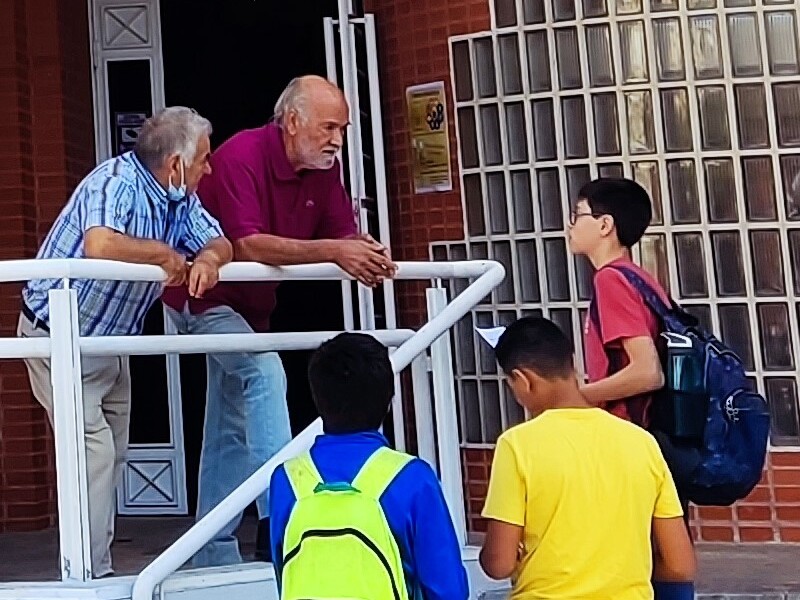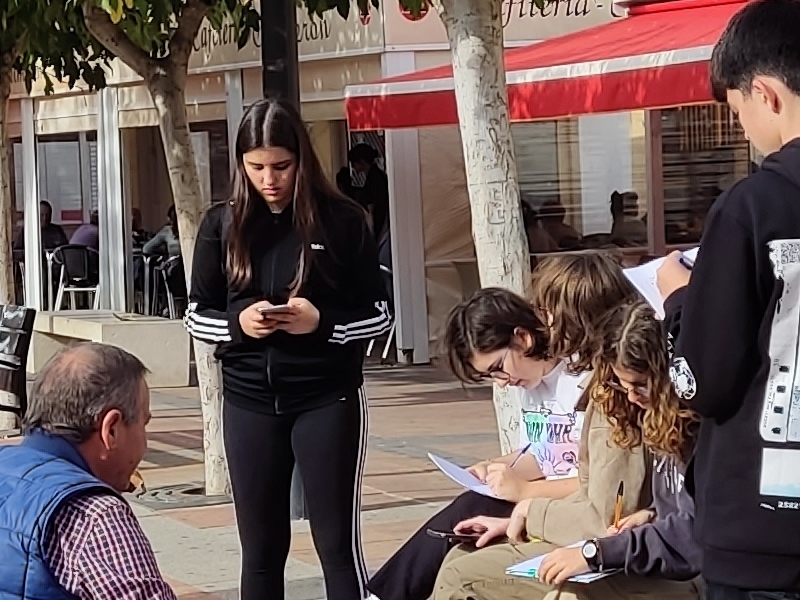
In this activity, 3rd ESO students, aged 14-15, in groups of 3-4, engage in 8 sessions without requiring any specific materials. The primary objectives are to recognize and value Spanish dialectal varieties, particularly the local one, by exploring their origins, historical development, and sociolinguistic aspects across oral, written, and multimodal forms.
The activity includes the analysis of students’ linguistic biographies and local linguistic diversity, comparisons of dialectal varieties, and differentiation between dialectal and sociolectal/register features. The methodology encourages reflection, research, and collaborative learning, involving various tasks within a research cycle.
The sessions involve the detection of prior knowledge, theoretical introduction to linguistic variation, practical introduction to sociolinguistic work, guided research, conducting targeted surveys, sharing results, incorporating the linguistic landscape into the school, and a final evaluation. Initial, formative, and final evaluations are carried out to assess student understanding and progress throughout the activity.
Recognize and value the dialectal varieties of Spanish, with special attention to that of the territory itself, from the explanation of its origin and its historical and sociolinguistic development, contrasting features of the dialects of Spanish, differentiating them from sociolectal and registration features, in oral, written and multimodal manifestations.


Promotion of reflection and research based on a question close to the students: the speech of the municipality where they live.
The project involves processes of search, selection, analysis and interpretation of information from the management of varied sources and resources and is based on the work process of the research cycle (preparation, collection ofdata, preparation of conclusions and reports and their subsequent presentation and dissemination).
The activity favors individual work, teamwork and cooperative work. The design of the task encourages the application of collaborative learning through tasks in which students actively participate in the negotiation of roles, responsibilities and results.
Formative evaluation based on the feedback of information between teachers and students and among the students themselves.
The realization of flexible groupings depending on the task to be developed and the individual characteristics of the students in order to perform specific tasks of enrichment or effort.
The space is organized in basic conditions of accessibility and non-discrimination necessary to guarantee the participation of all students in classroom and center activities.
None
Initial or prior evaluation: in the first session, students carry out a questionnaire with two different parts: a) general part: they ask themselves what the landscape is, they must give an open answer with their own definition; b) Specific part: it questions about what they understand by linguistic landscape, through questions that try to know their opinion on the prestige of linguistic variety and on the features that characterize it, especially those that are going to be studied through the survey. The answers are shared and serve as a starting point to build a new definition of ‘landscape’.
Formative evaluation: based on feedback, which starts from the results of the initial evaluation and goes through the organization of the groups and the entire process of research and dissemination of the project, which is adapted and oriented according to the needs that the students show.
Final evaluation: the teacher obtains results through a double evaluation:

